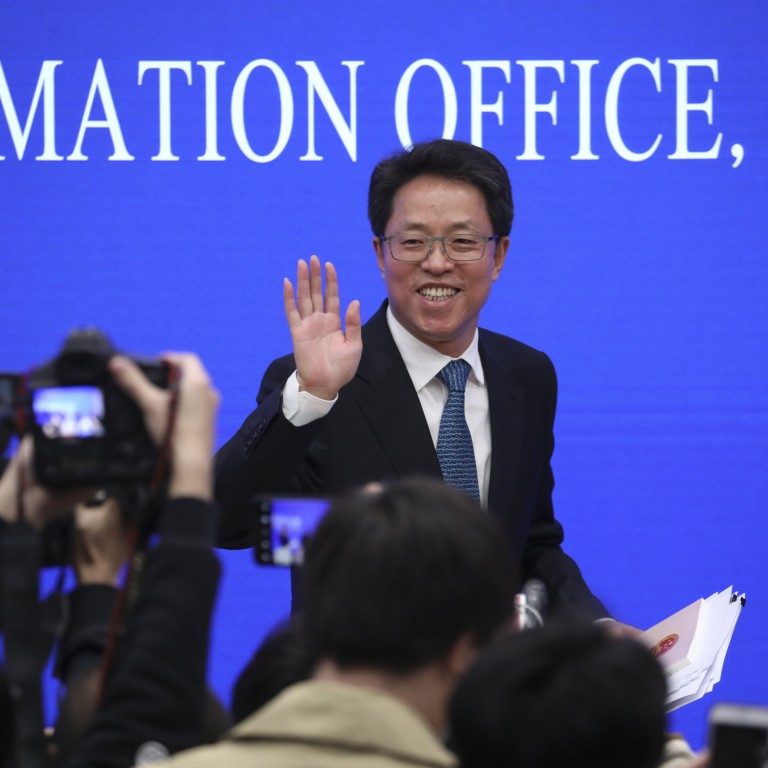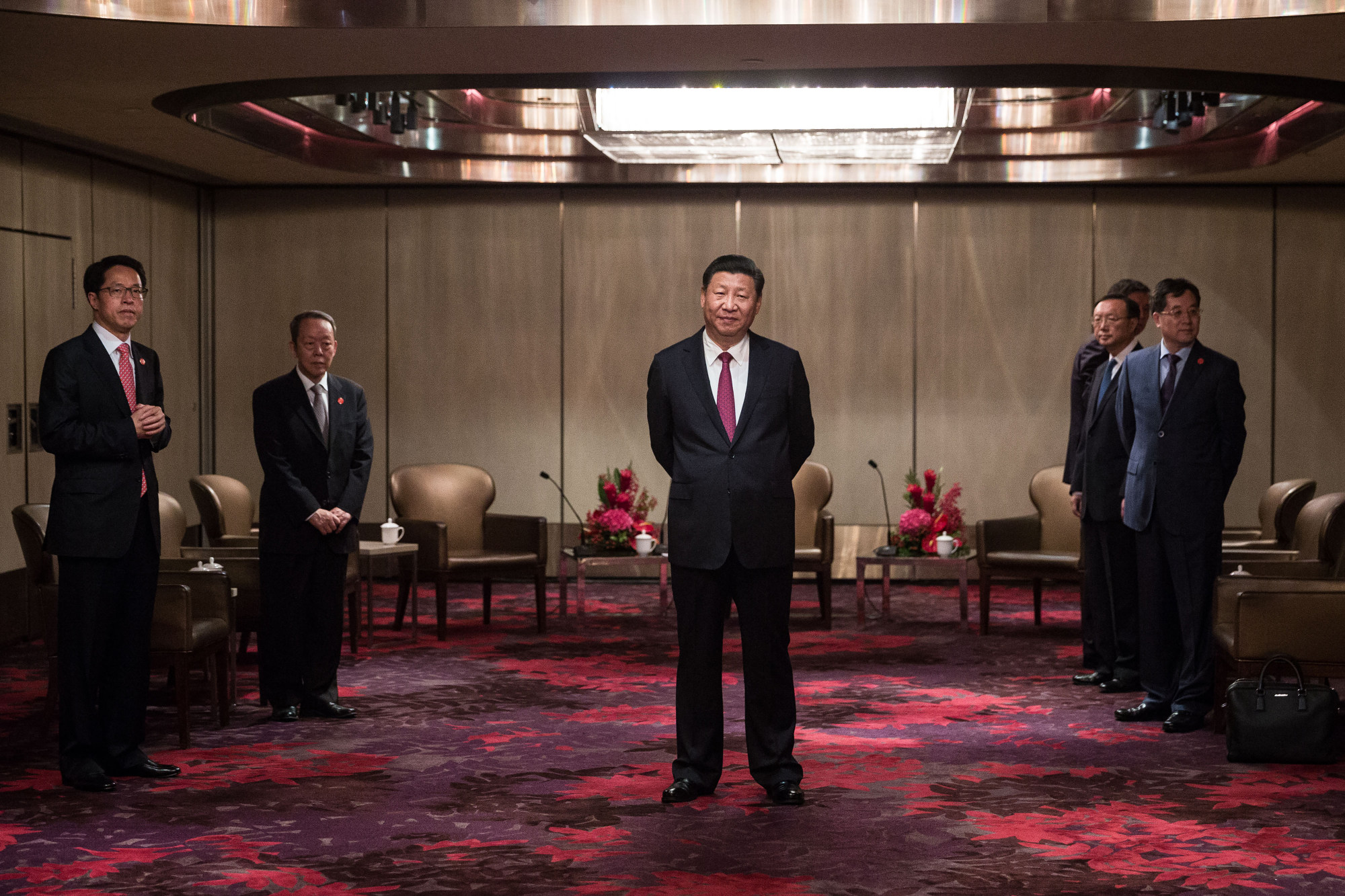
Top Beijing official handling Hong Kong affairs moved to nation’s political advisory body
- Zhang Xiaoming, formerly executive deputy director of State Council’s Hong Kong and Macau Affairs Office, now at Chinese People’s Political Consultative Conference
- Zhang has been appointed deputy secretary general at nation’s top political advisory body as it prepares to step up work relating to Hong Kong and Macau affairs
A senior Beijing official who has been handling Hong Kong affairs for more than three decades has been transferred to the nation’s top political advisory body as it seeks greater and more meaningful engagement with the local community, the Post has learned.
A mainland Chinese source on Tuesday said Zhang Xiaoming, formerly executive deputy director of the State Council’s Hong Kong and Macau Affairs Office (HKMAO), had been appointed deputy secretary general of the Chinese People’s Political Consultative Conference (CPPCC).
But it remains unclear who will succeed Zhang at the HKMAO.
A second insider familiar with the personnel change said the move signified Beijing’s intention to strengthen the CPPCC’s work related to Hong Kong and Macau, in particular engaging people from different walks of life in both cities.
“Under the rule of President Xi Jinping, the CPPCC is no longer a decoration or a vase. The central leadership wants it to deliver,” the second source said, adding that Zhang would retain his ministerial rank.
China upgrades Hong Kong affairs with new chief
“One of Zhang’s major tasks is to galvanise Hong Kong delegates to the CPPCC into action and ensure they play a bigger role in the city’s affairs,” the second source said.
Zhang, 58, began working at the HKMAO in 1989 after graduating from Renmin University of China Law School. He served as deputy director of the office from 2004 to 2012 before being promoted to director of Beijing’s liaison office in Hong Kong. He was then appointed HKMAO director in 2017.
“Zhang also has rich experience in handling relations with foreign countries,” the source said, referring to the official’s meeting with British Consul General Andrew Heyn to discuss bilateral issues affecting the United Kingdom and Hong Kong in April 2019, just months before social unrest erupted.
It was widely believed their discussions touched on the government’s proposed extradition bill, which became the focus of protesters’ anger.

The following February, the central government appointed Xia Baolong, CPPCC vice-chairman and secretary general, as director of the HKMAO and made Zhang executive deputy director.
Xia is widely regarded as a trusted ally of Xi as they worked together for more than four years in the mid-2000s when Xi was Communist Party chief in Zhejiang province. Xia served as his deputy at the time. Zhang retained his ministerial rank, with his role devoted to “handling day-to-day operations”.
Professor Song Sio-chong from Shenzhen University’s Centre for Basic Laws of Hong Kong and Macau, said the reassignment could signify Beijing’s intention to encourage local delegates to play a bigger role in the city’s politics.
“[Zhang] can make good use of his experience to spot talent among the Hong Kong delegates to the CPPCC, as well as local members serving as advisers in other CPPCC chapters in various provinces,” he said.
When asked about the personnel change, Lau Siu-kai, vice-president of semi-official think tank the Chinese Association of Hong Kong and Macau Studies, also pointed to Zhang’s deep knowledge of local affairs.
“If the central government is to strengthen the line-up of Hong Kong delegates to the CPPCC at all levels, especially to bring in more talent while stepping up their involvement, ability and role in Hong Kong affairs, Zhang Xiaoming will be able to unleash its potential based on his work on Hong Kong and Macau in the past,” said.
Veteran China watcher Johnny Lau Yui-siu shared similar observations, citing Zhang’s extensive time in Hong Kong. He also suggested that the departure of such a veteran official from the HKMAO could also be a telling sign.
When Beijing appointed Xiao Baolong to lead the office in 2020, it was seen as Beijing’s move to put in place a leader with less attachment to the city so that tough decisions could be made following the 2019 anti-government protests, Lau said.


